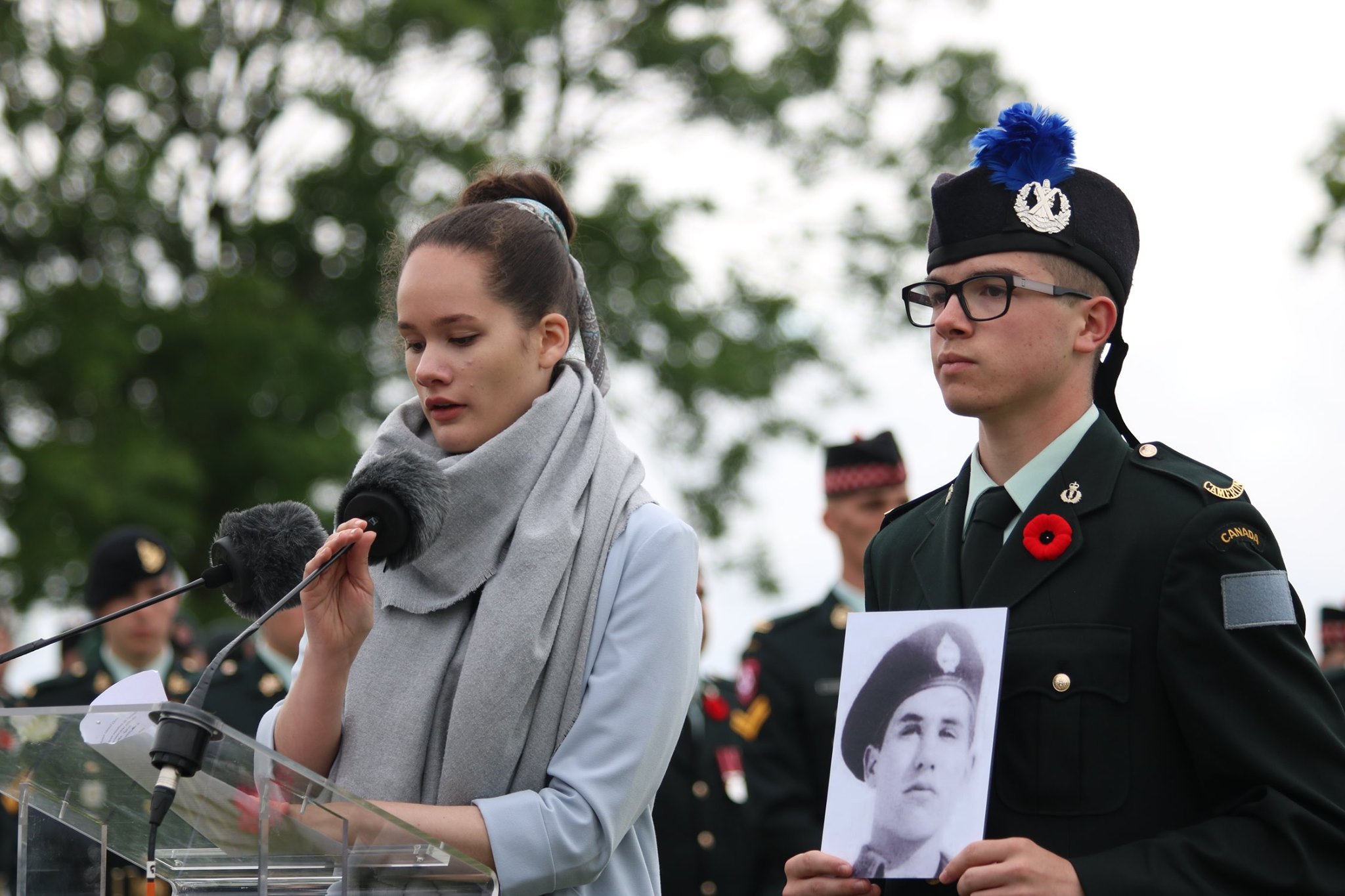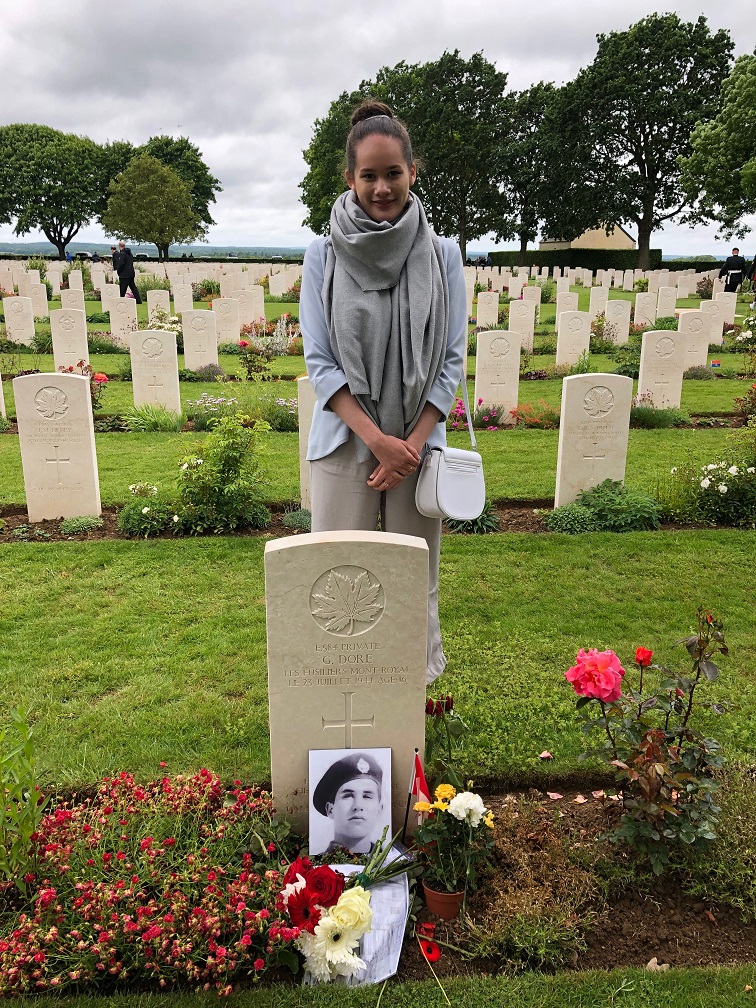Khamael Johnston
(D-Day 75 Youth Delegate)
Khamael Johnston travelled to France as a youth delegate on the Official Government of Canada overseas delegation. While in Normandy, France she participated and attended ceremonies that honoured the countless Canadians and Allied forces who sacrificed for peace and freedom.

When I arrived in Normandy, I remember the feeling I had stepping onto Juno Beach for the first time. Standing on the warm sand with the gulls wheeling overhead, I was engulfed in the eerie conflict between this idyllic beach and the knowledge of the blood that had been spilled beneath my feet seventy-five years ago. Growing up, I learned about my great-uncle’s lasting emotional scars after his time as a field surgeon during the Battle of Normandy. I have always known what a privilege it was to be born after the war— to not have faced the tremendous sacrifices made for peace first-hand. However, I had always struggled, with how distant I felt from the events of the Second World War, that had so profoundly shaped my world.
I found myself wondering… if faced with the same call—would I have answered as selflessly as these youths did?

Having the honour to travel to France, however, meant that whatever distance I had felt rapidly shrunk. On the first morning, we visited the Bény-Sur-Mer Canadian War Cemetery. The harsh realities of the human costs of war began to hit me as I paused in front of the many tombstones inscribed with “age 19”. I found it impossible to fathom the bravery and sacrifice one of the darkest periods in human history called upon from ordinary young Canadians who were within a year of my own age. I found myself wondering…if faced with the same call—would I have answered as selflessly as these youths did? This question kept circling in my head in the coming days as I prepared the research project that I would eventually present at another Canadian cemetery. My research project honoured Gerard Doré, who is thought to be the youngest Canadian to lose his life in service during the Battle of Normandy. While reading letters written by Doré’s family in the wake of his passing, I thought of the statistics I had memorized in my history classes—I could not begin to multiply the anguish that leaked through each of Doré’s words by a thousand…a hundred thousand…or several million.
I have realized that remembrance is not a passive sentiment to be confined to one ceremony or one day. But rather, it is an active promise.
As youth, our main role at ceremonies was often to recite the Commitment to Remember. Seeing the emotion in the Veterans’ eyes as they raised their hands to salute, and hearing the strength in their voices as they told their stories, made me reflect on the weight of responsibility of the words I was repeating. I vow to carry the torch of remembrance. The danger of the gift of peace that these Veterans and their fallen comrades gave us, is that we will forget the magnitude of their sacrifice; and in the face of time and distance, the prioritization of “never again” made by those who were witnesses to the brutality of war, will fade. I have realized that remembrance is not a passive sentiment to be confined to one ceremony, or one day. But rather, it is an active promise: to work so that the hope for peace no longer walks hand in hand with the sacrifice of youth—as it did on D-Day.
Khamael Johnston is this week’s Face of Freedom, an example of a new generation of Canadians who continue to commemorate and honour the sacrifices of Canadian Veterans, both past and present. The actions of those Veterans have allowed us to lead the life we do today – strong and free.
- Date modified: